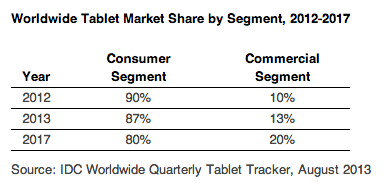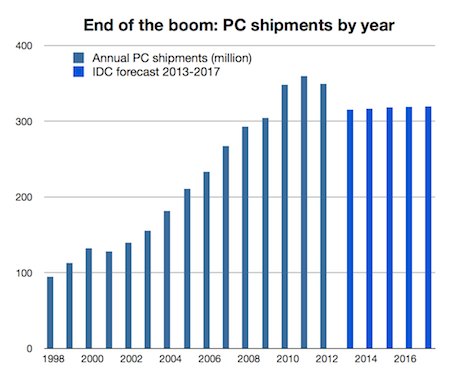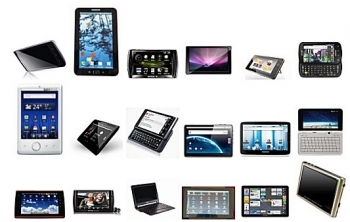The news is not good for desktop PC or Mac. Both face a more rapid encroachment by these microcomputers than expected.
It is pretty simple really. For the past 20 years, it has all been about Moore’s law (typically, where computing power doubles every 18 months for the same cost). More power, more memory, bigger screens, faster, cheaper, better and bigger and more complex programs, drove the uptake of PCs. Yet, Windows XP running on ageing Pentiums, not dual or quad Core processors, still accounts for nearly 40% of the PCs in use today.
More recently, consumers began to see that an iPad or an Android tablet made a good content consumption device and, if you do not care about Microsoft Office file/format compatibility and add a Bluetooth keyboard, they can make a good creation device too.
Where the home market first bought PCs, then notebooks, it is now cheaper tablets for all. Both Windows and Mac OSX have lost the home front.
In the corporate arena, they remain the staple of corporate users but tablets and hybrids - particularly Windows full featured ones - are encroaching at a rapid pace.

IDC say that tablets are set to overtake desktop PC/Mac sales by mid-2014. That will change the world forever, presaging an always connected, mobile computing environment.
|
|
Tablet shipments in 2013 are expected to reach 227.4 million – 57.7% up on 2012. Such growth is to be expected as the iPad had little competition until this year. Samsung has built on Apple's creation of this niche market.
PC shipments are expected to be 315.4 million units, recently drastically cut from 438.5 million. What is worse for PC’s is that there is no predicted growth over the next few years, and more likely a decline.

And that is ok. Not everyone needs a Rolls Royce to do the shopping, or uses a sledgehammer to crack a nut.
Opinion
It is clear that both Apple. via its Mac OSX, and Microsoft Windows/Office, have to evolve or face irrelevance as operating systems. To be clear, both have mobility options - e.g. iOS and Windows Phone/RT - so we will not see these behemoths disappear.
I am more concerned at the hardware makers and retailers who relied on higher priced, higher profit, PC products. Dell, HP, Acer, Lenovo, and more need to adopt dual strategies for mobility as well as bigger screen desktop experiences. These need to include more dock-able devices because users will just want one environment regardless of screen size.
IDC also predict that wearable devices will take about 2% of the tablet market this year and really take off next year. Smart phones may become pocket computers with a host of device-agnostic Bluetooth connected devices like glasses, earrings, bracelets, lanyards, wristbands, and more, bringing computing to the user.
This strategy reflects the increasing popularity of programs like Parallels – see iTWire’s Alex- Zaharov-Reutt article on ‘running’ Windows on a Mac - and soon an iPad or Android, I suspect. Virtualisation software will overcome all barriers for device interoperability. It also reflects an increasing tsunami towards cloud storage and virtual computing – a completely new playing field that Microsoft, Apple, Google and Amazon will do battle over.
To finish with a quote from IDC
IDC repeated its previous criticism of Microsoft's Windows 8 usability - and the parallel rise of tablets - for driving some of the changes. "The days where one can assume tablet disruptions are purely a First World problem are over," said Jay Chou, senior research analyst at IDC. "Advances in PC hardware, such as improvements in the power efficiency of [Intel Haswell] x86 processors remain encouraging, and Windows 8.1 is also expected to address a number of well-documented concerns. However, the current PC usage experience falls short of meeting changing usage patterns that are spreading through all regions, especially as tablet price and performance become ever more attractive."














































